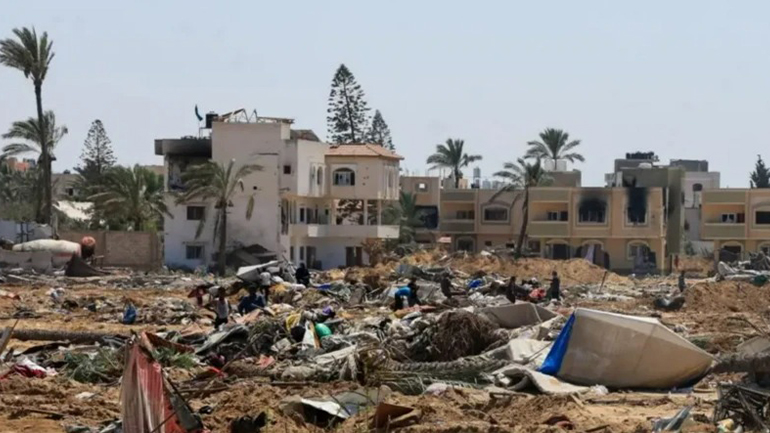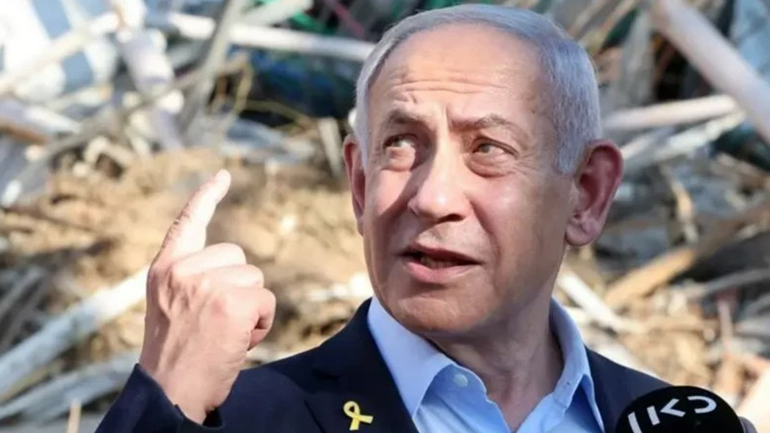

Two years ago, Hamas was finalizing its plan to attack Israel, preparing for what would become the October 7 Hamas attack. At the same time, Israeli Prime Minister Benjamin Netanyahu believed the real threat came from Iran, while viewing the Palestinian issue as a manageable concern. Despite his public opposition to Hamas, Netanyahu allowed Qatar to send financial aid to Gaza, which provided him the diplomatic space to focus on broader Netanyahu foreign policy goals—particularly confronting Iran and pursuing Israel-Saudi relations. Meanwhile, the Biden administration in the United States was confident it was nearing a breakthrough in Middle East peace efforts, aiming to secure a historic agreement between Israel and Saudi Arabia. However, it all turned out to be an illusion. Netanyahu has so far refused to initiate an inquiry into the strategic and intelligence failures—both his own and those of the Israeli military and security agencies—that enabled Hamas to launch the devastating attack on October 7, 2023.

There is now clear evidence that Israel has also committed numerous war crimes since October 7th.
The long-standing Israel-Palestine conflict over land, which has remained unresolved for nearly a century, was once again igniting into a major war—one with the potential for far-reaching consequences, much like the wars of 1948 and 1967. Since the October 7 Hamas attack, the Middle East has been transformed, and now, two years into the war, the region stands at yet another critical juncture. This has been a conflict where journalism became extremely difficult. The Hamas-led assault on October 7 caught even journalists off guard, and since then, Israel has imposed severe restrictions on independent international reporting in Gaza. Inside the Gaza Strip, Palestinian journalists have shown immense courage, with nearly 200 reported killed so far. But some facts are clear. During the October 7 attack, Hamas killed around 1,200 people, including Israeli civilians, and committed serious war crimes. They also kidnapped 251 individuals—about 20 of whom may still be alive in Gaza. Now, there is also clear evidence of war crimes by Israel following the attack. These include starving the Gaza civilian population, failing to protect civilians during military operations, which resulted in thousands of innocent deaths, and causing disproportionate destruction of towns, not justified by the army threats Israel claims to face.
International Criminal Court (ICC) arrest warrants have been issued against Israeli Prime Minister Benjamin Netanyahu and his former defense minister for alleged war crimes, though both deny the charges. Israel has also criticized the ongoing legal proceedings at the International Court of Justice, which accuse the country of committing genocide against Palestinians—an allegation Israel firmly denies. Israel is increasingly losing support on the global stage. Many of its Western allies, who had expressed unconditional support following the October 7 Hamas attack, are now growing frustrated with Israel’s conduct in Gaza. Even Israel’s most crucial ally, Donald Trump, is reportedly upset with Netanyahu over his unexpected bombing of Damascus, which targeted a government recently recognized by the United States. Other Western allies had lost patience much earlier. On July 21, the UK, European Union, Canada, Australia, New Zealand, and Japan issued a joint statement condemning Israel's military operations in Gaza. The statement highlighted the dire humanitarian situation and specifically criticized the Israeli government's failure to support the UN's alternative food aid distribution system, which has led to unnecessary civilian deaths. The joint statement declared: "Israel's aid system is dangerous and destabilizing, resulting in the inhumane deaths of civilians, including children, who are simply trying to meet basic needs for food and water. It is horrifying that over 800 Palestinians have been killed while attempting to receive aid." The statement further stressed: "Denying civilians basic humanitarian assistance is unacceptable. Israel must fulfill its obligations under international law." Later, UK Foreign Secretary David Lammy released an additional statement. Still, it failed to satisfy Labour Party members, who are now calling not only for strong words but for strong action. One party member told me there is “intense anger” over the government's inaction. They are demanding recognition of the Palestinian state, something that most UN member nations have already done. The UK and France had reportedly considered recognizing Palestine jointly, but it now appears they believe the timing is not right for such a move.

Israel's most important ally, Donald Trump, is also reportedly unhappy with Netanyahu's sudden decision to bomb Damascus.
The Israeli parliament is about to go into recess, which means that until October, Prime Minister Benjamin Netanyahu will not face a no-confidence vote from the far-right nationalist members of his coalition who strongly oppose a ceasefire in Gaza. One major reason for Netanyahu’s hesitation in negotiating a ceasefire is the threat by his coalition partners to leave the government if such talks proceed. If Netanyahu is removed from power, he will likely be held accountable for the failures surrounding the October 7 attacks, and his long-standing corruption trial will also gain momentum. However, there is still a possibility of a ceasefire, which could not only save the lives of Gaza’s civilians but also secure the release of Israeli hostages still held by Hamas. Yet, this does not mean the conflict will end. The war has further escalated the Israeli-Palestinian conflict. But if a ceasefire is reached now, it might serve as an opportunity to shift from violence to diplomacy.
Powered by Froala Editor